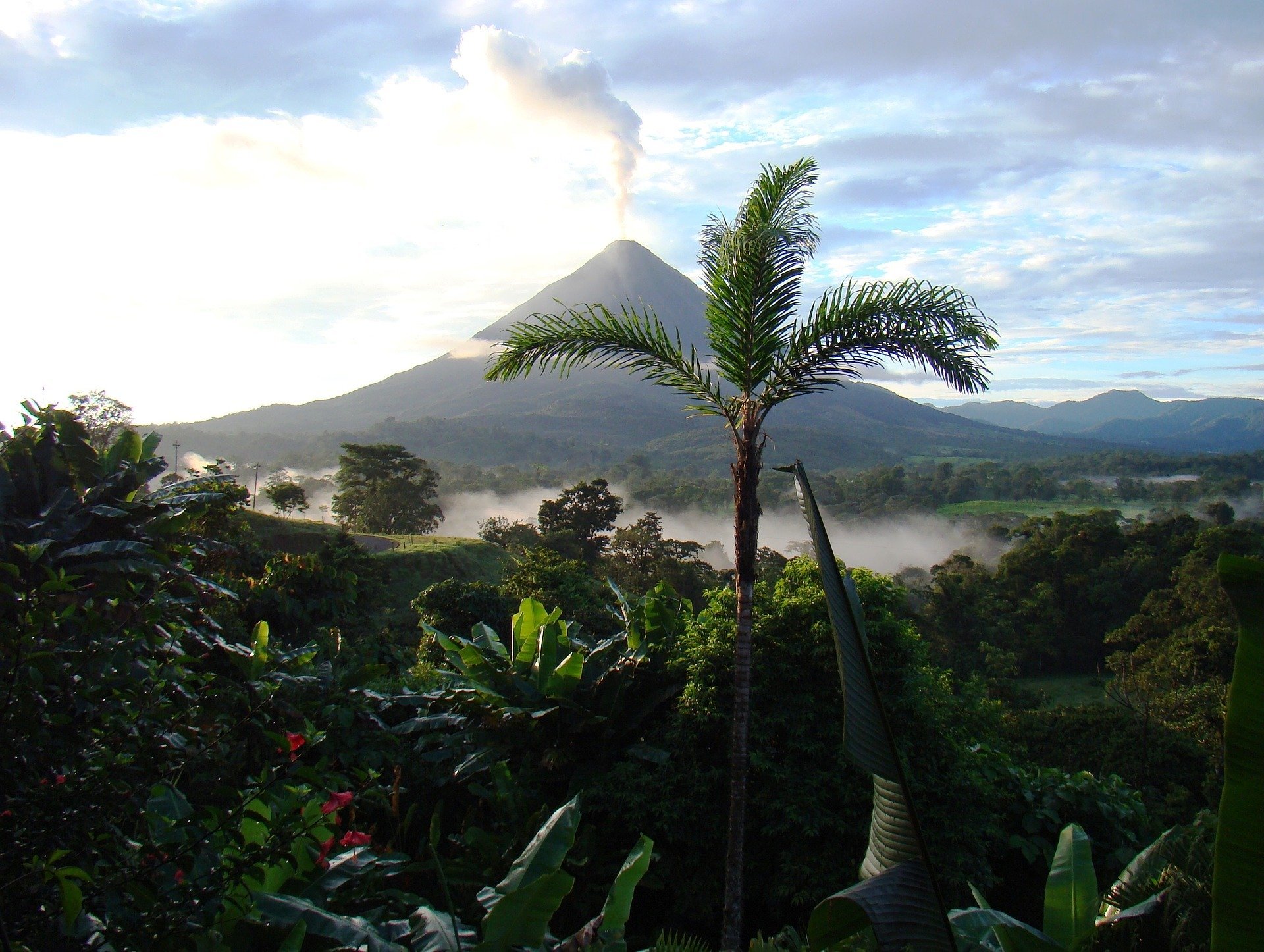10 RULES TO LIVING IN COSTA RICA

We have been living in Costa Rica for several years now, and while the transition hasn't always been smooth, the experience has been enjoyable and inspiring.
This country, its traditions, its weather, and its geography are vastly different from what we were used to in rural Ontario and while some of the local practices and habits still baffle me, I have learned to accept our differences.
And to be perfectly honest, I have learned from the people in my new home because in many ways, their outlook on life and their connection to the natural world is something I aspire to.
I love my life here, but as I said, it was a transition. It required acceptance and a willingness to see things from a new and different perspective... to remember that different isn't necessarily bad... it's just new.
To help you with your transition to Pura Vida, I have come up with 10 rules that will help you.
- Remember that you are a guest in their country. You cannot expect to live exactly the way you would in your home country. Everything is different, from the laws to the social mores, so your best bet is to do your research instead of making assumptions.
- Make an effort to learn the language. This is one we are still struggling with because languages don't come easily to us, but by refusing to try you really are just shooting yourself in the foot. Costa Rican people as a whole are very welcoming and friendly, and having the tools to converse makes life happier and easier. Don't worry about perfect grammar or pronunciation- just dive in and give it a try, the more you do, the more you will learn.
- Don't expect drivers to follow the same rules as in North America. Driving here is an experience in itself. perhaps due to the fact that much of the highway wasn't even paved until about 10 years ago, drivers tend to ignore pesky things like the lines on the road, the concept of lanes, and even the idea that you should park your car facing the same direction as you would drive. On the other hand, you will seldom get honked at or harassed for double- parking or pulling out into traffic. Its a very "live and let live" place where, even though there are traffic laws, most people drive as if anything goes.
- Don't be flashy. The average monthly wage in Costa Rica is $600 US. While most of the people are honest and hard-working, there are those who are struggling, and/or desperate to feed their families. Don't tempt them with ostensible displays of wealth. Physical violence is uncommon, but at the same time, your fancy Iphone could feed their family for several months, so be aware and keep costly items close by or out of site.
- Be respectful. That artisan who is walking the beach trying to sell his wares has put time and effort into his craft and now he is walking miles in the heat to try to sell them. If you don't want one, a smile and a polite "no gracias" is all you need to say for them to move on.
- Appreciate the differences! Chances are, you left your home country for a reason, maybe its the weather, maybe its the pace of life... whatever it was, you chose Costa Rica because something about it appealed to you, so embrace it. Try new things, buy food from the local feria (market), watch and learn. An open and accepting attitude really makes all the difference.
- Find a network of like-minded friends. By this I don't mean find a group who came from your hometown and try to recreate that hometown here in Costa Rica. What I mean by this is that it takes a while to find all the things that make life easier. A good housekeeper, a trustworthy mechanic, the best stores to shop at. Relying on the experience of people who understand what you are going through can really smooth the way and help you find your feet.
- Get to know your Tico neighbours. Having some fellow expats to help you acclimatize is a must, but so to is cultivating friendships with the locals. Not only will it help you learn the language and understand the culture but it will help you learn about your new home. Ask about the weird fruit in the market, getting recipes, preparing for the rainy season, and understanding the holidays and traditions is all much easier if you have someone who has lived here their whole life who can guide you.
- Explore! This country is a study in contrasts. It has so much to do, so much to see, and a great deal to teach. Play tourist whenever you can and don't be afraid to just get in the car and explore. I highly recommend you do so with a good translator app, WhatsApp in case you need to call for directions, and Waze (a GPS app) to help you find your way... then go and have fun!
- Find a good lawyer. Every large purchase in Costa Rica, right down to buying a scooter from your neighbour, requires legal paperwork done by- you guessed it- a lawyer. If you live here, open a corporation, buy a home, have a car- your lawyer will have a huge impact on your life. They can be very helpful, or... if they aren't very good... they can cause you a lot of stress. Ask around, listen to your friends, get reviews, and find someone you can trust to help you navigate the legalese because all legal paperwork in Costa Rica must- by law- be done in Spanish. This means that those of us who don't speak it fluently must trust that that they have properly explained what we are signing, or we must invest in a translator to ensure to our own satisfaction that we understand the various contracts and legal papers involved in most transactions.
I hope this list has been helpful. Moving to a new country- any country- is a big step, and it can be a little unnerving, but I personally have no regrets about our decision.

I honestly thing that those who come here and move home within a few years (because it does happen) didn't take the time to understand this place and its people. Perhaps they expected it to be just like "home" but warmer and cheaper.
Happiness, really, is all about managing your expectations and being adaptable, and when you settle in and look around with an open mind, you start to see that the pura vida lifestyle has a lot going for it... and that's when you realize you truly are living in paradise.
